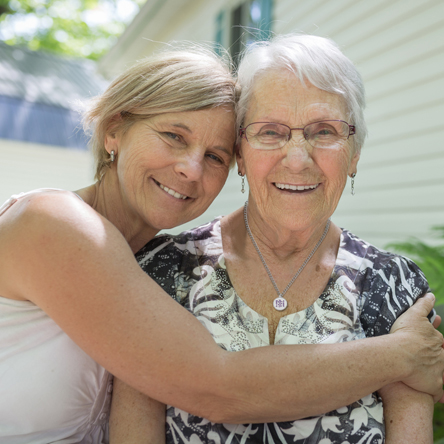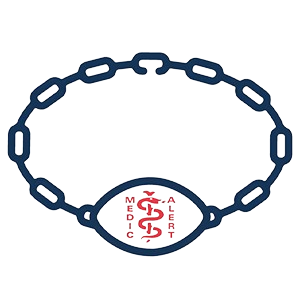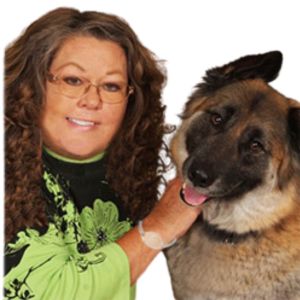Alzheimer's & Caregiving
Joyce is a single mother managing the double duty of raising three children and caring for her mother, Rose, who lives with Alzheimer’s. Initially, Rose showed only mild symptoms of the disease, but she soon encountered one of its most distressing symptoms: wandering.
Wandering became a significant source of anxiety for both Joyce and Rose. To keep her mother safe, Joyce turned to MedicAlert. Together, they selected a medical ID and enrolled in the Safe & Found™ plan. Enrolling her mom in MedicAlert eased Joyce’s worries – Alzheimer’s and caregiving can be terrifying.
Despite Joyce’s efforts, one night at around 2:00 a.m. Rose wandered from her home — walking three miles away on a cold, dark night. Fortunately, a concerned police officer noticed Rose. Disoriented and unable to recall her name or address, it was clear Rose needed help. Thankfully, she was wearing her MedicAlert bracelet and the officer was able to quickly contact the MedicAlert hotline.
Facts About Alzheimer's Care
Over 11 million Americans provide unpaid care for people with Alzheimer's or other dementias.
Unpaid caregivers provide an estimated 18 billion hours of care valued at $339.5 billion.
Only 4 in 10 Americans said they would talk to their doctor right away when experiencing early memory or cognitive loss.




